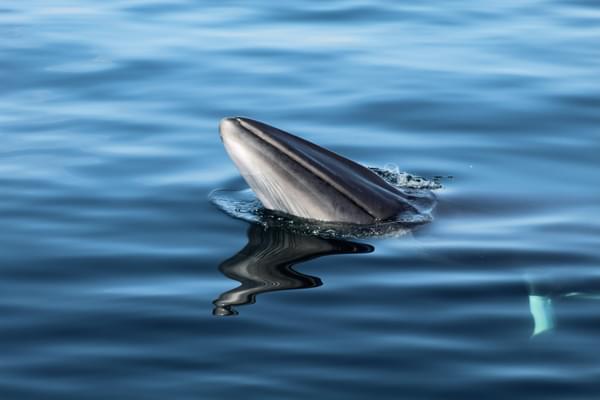Global leaders gathered in France for UNOC3 – but is the world finally ready to act on ocean health?
After a brief burst of international media attention, the UN’s 3rd Ocean Forum (UNOC3) in France has come and gone. Prince William, David Attenborough, President Macron and around 50 heads of state took the stage – and much of what they said was bleak. But not all hope is lost.
UN Secretary General António Guterres warned: "The ocean is the ultimate shared resource. But we are failing it." For those of us working in marine conservation, some of this rhetoric felt familiar – even tired. It's one thing to liken deep-sea mining to a “Wild West,” but in truth, ocean cowboys have been plundering marine ecosystems for decades. We've long known that hoovering up resources and dumping waste in return is a race to the bottom. What’s needed now isn't more warnings – it’s a credible plan.
And yet, no one captured the urgency more succinctly than President Surangel Whipps Jr of the Pacific island of Palau: “If you are serious about protecting the ocean, prove it.”
The ocean is under intensifying pressure. Climate change is heating our seas, driving the fourth global coral bleaching event since 1998, and warping ocean ecosystems at a biochemical level. Sea levels are rising. Weather is becoming more extreme. Yet while the UN estimates that ocean investment needs to hit $175 billion a year to meet conservation goals, recent figures fall far short.
But amid the inertia at the top, energy is building from below. A wave of ocean innovators – scientists, coders, entrepreneurs and communities – are bringing creative, scalable solutions to life. Under the UN’s Ocean Decade banner, initiatives like Seabed 2030 and 1000 Ocean Startups are connecting science, tech and grassroots action. Projects like Living Seawalls and Revive Our Ocean are blending modern tools with Indigenous knowledge to restore damaged habitats and reimagine marine conservation.
One meaningful step forward came with news that the High Seas Treaty – aimed at protecting waters beyond national jurisdictions – is on track to enter into force by early 2026. With only 1% of international waters currently protected, this treaty could be the key to establishing a global network of marine parks across nearly two-thirds of the ocean.
Despite some notable absentees – including the US – momentum is growing. France is calling for a moratorium on deep-sea mining and, like the UK, has placed restrictions on bottom-trawling. Brazil’s President Lula has condemned seabed exploitation as a “predatory race.” These are early but important signals of political will beginning to align with science.
Above all, UNOC3 made one thing clear: the threats facing our ocean are vast – but so is the will to address them. Science, policy, and community-led innovation are aligning in ways we haven’t seen before. The question now isn’t whether we can act – it’s whether we will. The ocean has given humanity everything. If world leaders are truly serious about protecting it, now is the moment to prove it.
Main photo & credit: blue whales, Charlotte Carne

ORCA's work to create safe ocean spaces and protect the whales and dolphins that live in them has never been more important, but we need your help. Please support our work by donating at www.orca.org.uk/donate to help us create oceans alive with whales and dolphins

